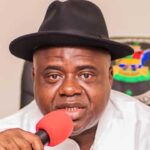
History as a subject helps learners to understand change and how the society we live in came to be, as well as how historical thought works. It aids students in understanding the contemporary world and how to approach the future.
In the past, history was taught in basic schools as a standalone subject and pupils were said to have enjoyed and valued the subject because they felt a sense of personal connection to the topics studied. There were few people who could not make effort to study it because it was connected to the past and had to do with memorizing names and dates.
However, in spite of the fact that the subject increased cross-cultural awareness, it was removed from the timetable at basic schools in the 70s and taught as part of social studies. It remained a standalone subject only in Senior Secondary School (SSS) and higher institutions.
The removal of history from basic classes didn’t go down well with many parents, teachers and educationists and thus, generated loud outcry.
The Minister of Education, Malam Adamu Adamu, said at the launch of a new history curriculum and teacher’s guide for basic education in Abuja that government resolved to re-introduce the subject because it was crucial to the realization of social and behavioral change in addition to national clamor.
He said, “The reintroduction of history into the school curricula has been a major concern to stakeholders in recent times.”
He said the Ministerial Strategic Plan (2016-2019), of the ministry contained several initiatives and activities to be executed, including the reintroduction of the teaching of history in primary and Junior Secondary Schools (JSS). He said the initiative was approved by the National Council on Education during its 61st Ministerial Session September 27 – 30, 2016.
“Following this, the Nigerian Education Research and Development Council (NERDC) was directed to carry out the disarticulation of history from social studies curriculum,” the minister also said.
According to him, NERDC assembled a team of experts and other stakeholders and produced a new history curriculum that was approved at the 62nd meeting of the National Council on Education held July 24 to 28, 2017 in Kano.
Malam Adamu noted that the reintroduction of history in basic schools would “rekindle our nationalism, nationhood and glory,” adding that the knowledge of history would provide the transparencies through which national values are projected, objectified and demonstrated by human society.
Again, he affirmed that history has come to stay in the timetables of basic schools and would sooner or later contribute to nation building. It would further imbue younger generation of Nigerians with the knowledge of the past and how the past is related to the present and also enable them to appreciate the basis of the unity of Nigeria, he said.
Deep historical knowledge, he stated, would empower the youth to understand the forces that shape the affairs of the world and their critical place in it and that children would be better prepared for the task of nation building.
Minister of State for Education, Professor Anthony Anwukah, said at the launch of the curriculum that it would restore the dignity of history in schools. It shouldn’t be taught as part of any other course or combined with other fields of study, he added.
In his comments, the Executive Secretary of NERDC, Professor Ismail Junaidu, said the presentation of the new curriculum would enable teachers to prepare lessons for pupils in the new academic session.
Speaking on how the subject was restored, he said the drive to reintroduce it as a standalone subject was actually necessitated by the demand and concern expressed by various stakeholders including the “Historical Society of Nigeria, the Presidency, National Assembly, Federal Ministry of Education as well as other concerned stakeholders.”
Professor Junaidu said the new curriculum was designed to achieve a number of objectives including exposing students to a body of knowledge that would enable them appreciate history as an instrument of national integration and nation building in the 21st century. It would deepen the positive understanding of traditional values and identities as well as the similarities and differences between the various Nigerian people as basis for appreciating unity in diversity, he said.
The curriculum would also promote the study of Nigerian and African history as a requisite for better understanding and appreciation of the changes of globalization.
He stated that the curriculum was divided into three levels; Primary 1-3 (Lower Basic), Primary 4-6 (Middle Basic) and JSS 1-3 (Upper Basic).
He explained that the concepts and knowledge about history were encapsulated in the curriculum under various themes such as concept of history, origins and peopling, heroes and heroines in Nigeria, political developments in Nigeria, geography and environment, economics, trade and commerce, culture and customs as well as external contacts.

 Join Daily Trust WhatsApp Community For Quick Access To News and Happenings Around You.
Join Daily Trust WhatsApp Community For Quick Access To News and Happenings Around You.


